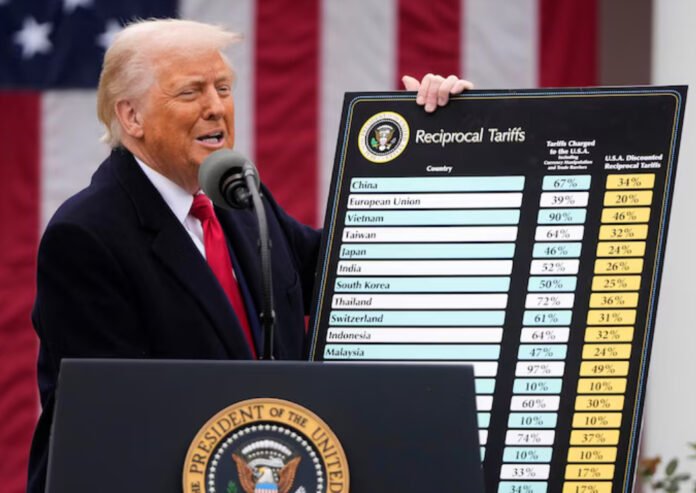- President Trump has pushed back his “reciprocal” tariff deadline from July 9 to August 1, extending a 90-day pause from April to allow more time for trade negotiations. Formal letters were sent to 14 countries—like Japan, South Korea, Indonesia, and Myanmar—warning of 25–40% tariffs if no deal is reached.
Wall Street Sees It as a Strategic Tug-of-War
- Muted market reaction: While Monday’s S&P 500 dropped nearly 1%, the swoon was softer than during the initial April tariffs—leading analysts to view this as a calculated extension, not a market shock .
- “TACO trade” phenomenon: Investors are leaning on the belief that “Trump Always Chickens Out,” buying dips on hopes he’ll back down yet again . As IG Australia’s Tony Sycamore put it, this is more of a “tariff aftershock—not a seismic shift” .
- Cautious optimism: Firms like Bank of America, Goldman Sachs, and Barclays are raising S&P year-end targets (as high as 6,600), betting that markets will look beyond tariff threats. Still, strategists caution against complacency, warning that worse-case tariffs could dent earnings if costs are passed to consumers .
What to Watch in the Coming Weeks
- Further tariff letters are expected—these will likely shape country-by-country outcomes.
- Market volatility could follow real tariff actions, especially if consumer prices rise.
- TACO stock and similar SPACs may serve as a proxy for investor risk tolerance; its stable share price today signals a wait-and-see stance.





